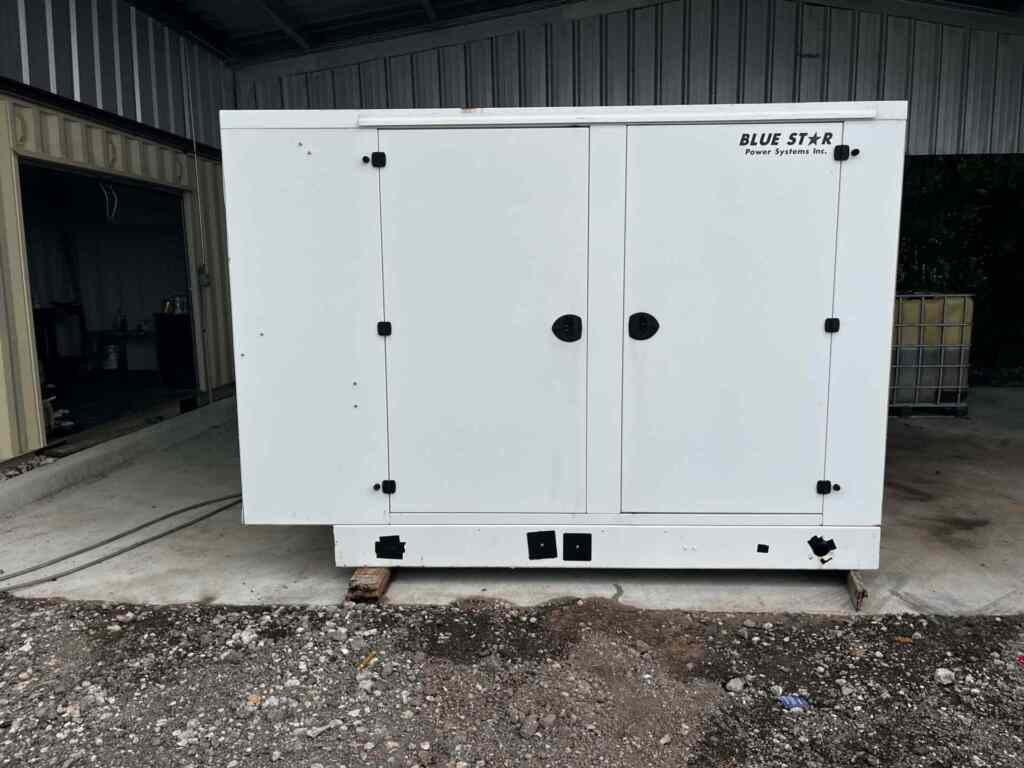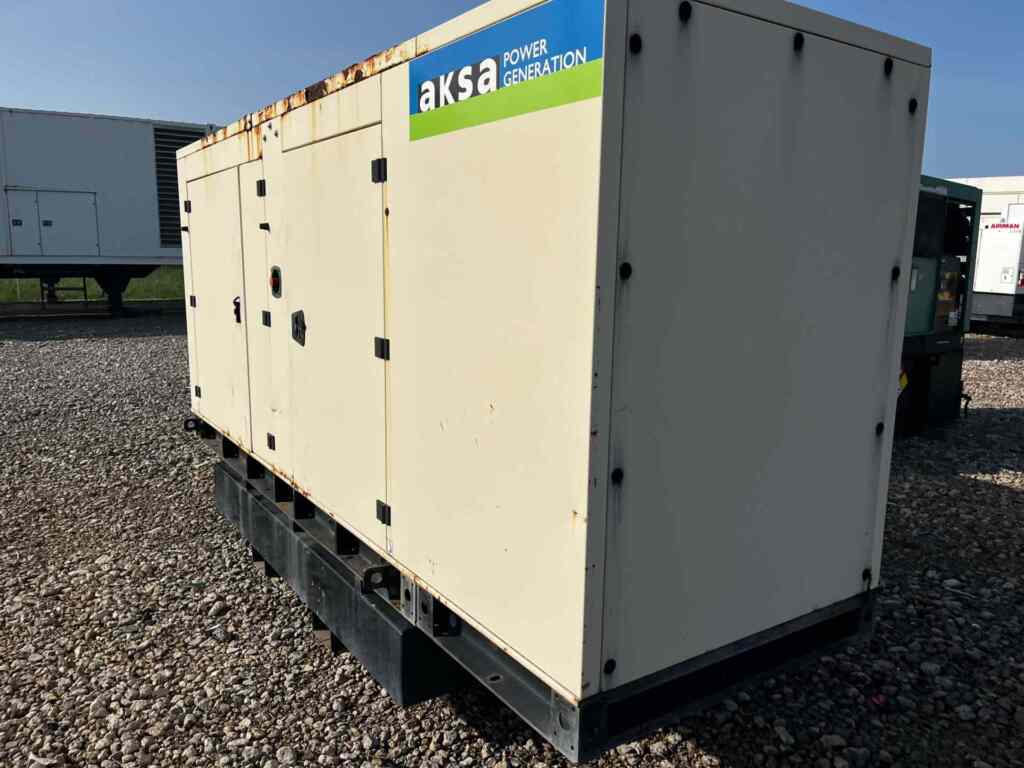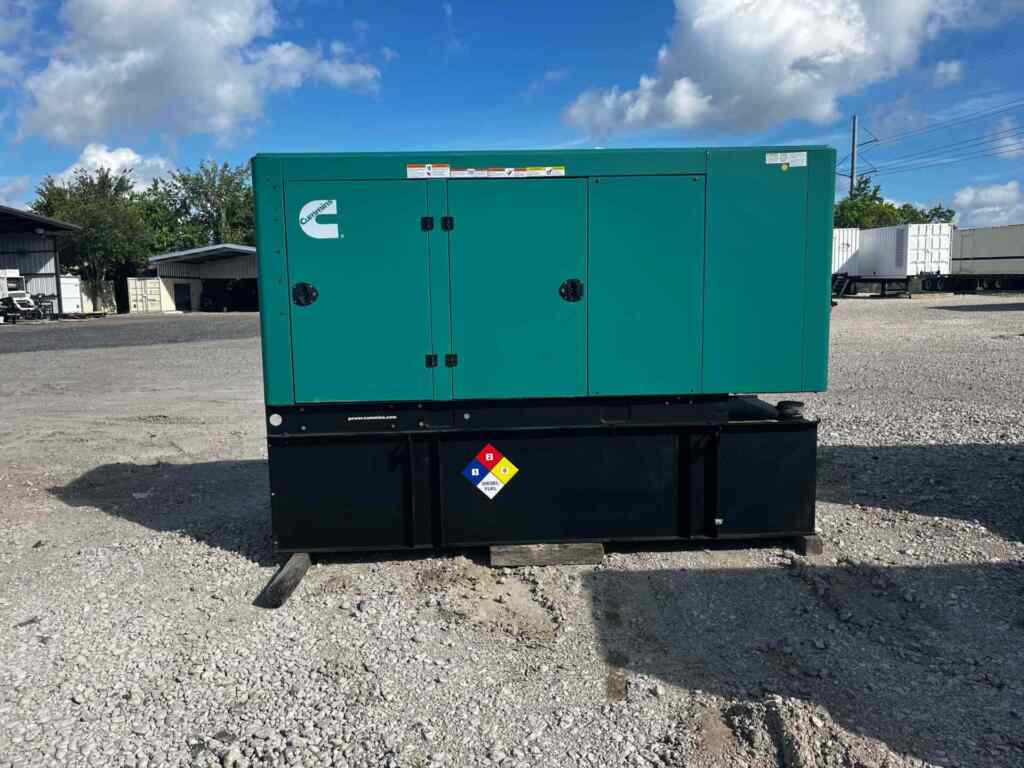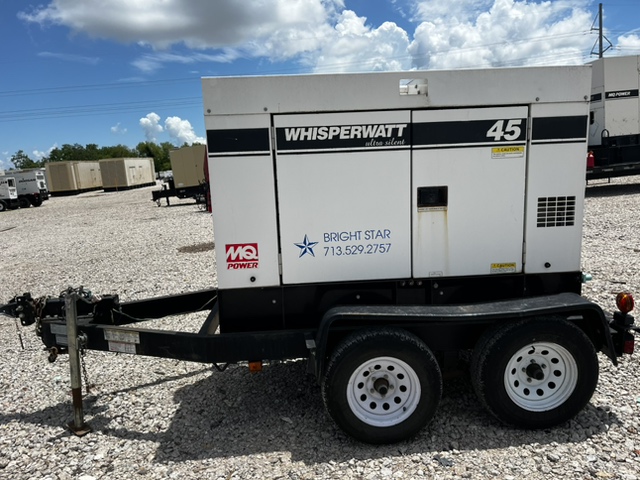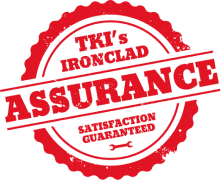You may be wondering about how a diesel generator benefits an industrial or commercial setting. Basically, a generator is a device that combusts fuel, and the resulting energy is used to produce electrical power when electricity from the grid is not available. They are useful as backup devices during a power outage, or on a job site when you need power to run tools. Generators use different types of fuel, but a diesel engine generator produces electricity by converting the energy obtained from the combustion of diesel fuel.
How Does A Diesel Generator Work?
A diesel fuel generator produces electricity by burning diesel fuel. These machines use a combination of an electric generator and a diesel engine to generate electricity by converting the chemical energy contained in the fuel to mechanical energy through combustion. This mechanical energy rotates the engine’s crankshaft, producing electricity that can be used to power homes and businesses during a power outage.
Unlike a gasoline engine generator, a diesel engine generator is essentially an internal combustion engine. The diesel engine uses the heat of compression to ignite and burn the fuel that has been injected into the generator’s injection chamber. This makes diesel fuel generators extremely efficient. They have the highest thermal efficiency of any generator type on the market today.
What Are The Benefits Of Diesel Generators?
Diesel generators, which are also known as diesel genset, produce electricity through a diesel engine and an electric generator. They are known for their longevity, low maintenance, and durability. Diesel fuel also burns with much less intensity than gasoline. This reduces the heat generated by the generator, and subsequently, the load placed on the engine. There are many other benefits to a diesel engine generator, including:
- Cost-effective – diesel can often be cheaper than other fuels like gasoline, making a diesel fuel generator less expensive to operate. This depends, however, on fluctuations in fuel costs. But they also need less maintenance than gasoline-powered generators and have fewer parts to maintain or replace. This makes diesel generators more cost-effective to operate and maintain.
- Fuel is easily available – diesel fuel is readily available throughout the U.S. But you can also store diesel in a tank or container for a longer period than you can store gasoline, which is important in the event of an emergency or power outage.
- Versatile – diesel generators are versatile, and can be used in a variety of applications and industries. They can be used as a temporary backup solution or to supply power for an extended period of time, based on their ability to handle both heavy loads and provide continuous power. They can be even used to supply energy in the absence of power grids.
- Fuel efficient – diesel has a higher thermal efficiency than gasoline or other fuels. On average, diesel generators consume almost 50 percent less fuel than gasoline units. This means they provide a massive amount of energy and have a longer running time than other generator units operating at the same capacity.
- Handle heavy loads – diesel generators can handle heavy loads effectively for an extended period of time. This makes them ideal to use in areas that don’t have access to a power grid connection for long projects.
- Efficient cooling – diesel generators have an inbuilt cooling component that handles the heat built up during the combustion of diesel effectively. This means that diesel engines can achieve peak effectiveness very fast without requiring extra coolants, water pumps, radiators, or temperature gauges.
- Low maintenance – a diesel engine generator needs less maintenance than any other fuel generator. They also don’t need spark plugs or wires for support, therefore, decreasing maintenance costs. A diesel generator can operate up to 12,000 to 30,000 hours at a speed of 1,800 rotations per minute before any major maintenance is necessary. At most, all you have to do is change the oil in the diesel generator regularly to ensure a longer life span of the system.
- Long life span – diesel generators have a longer life expectancy than gasoline ones. They are sturdy and reliable and operate efficiently even in harsh conditions if maintained correctly. On average, the diesel generator lasts three years more than other alternatives.
The Cons of Diesel Generators
Although diesel generators have many advantages over other conventional fuel generators, they do have a few cons. Mainly, these heavy-duty generators are often costlier than their gasoline counterparts – often by thousands of dollars. Moreover, their heavy-duty construction means they are less portable than gasoline generators, and spare parts may be more expensive as well.
However, if you are working in an environment that doesn’t have a power grid supply or you need backup for heavy loads, a diesel engine generator might be the right solution for you. Diesel generators are versatile and useful across many industries. When it comes to keeping the lights on and the job site humming along, diesel generators provide a robust solution.
 Turnkey Industries offers a variety of high-capacity
Turnkey Industries offers a variety of high-capacity 